ABOUT PIMS
A Timeline of Our History
Our Story
Over the Years
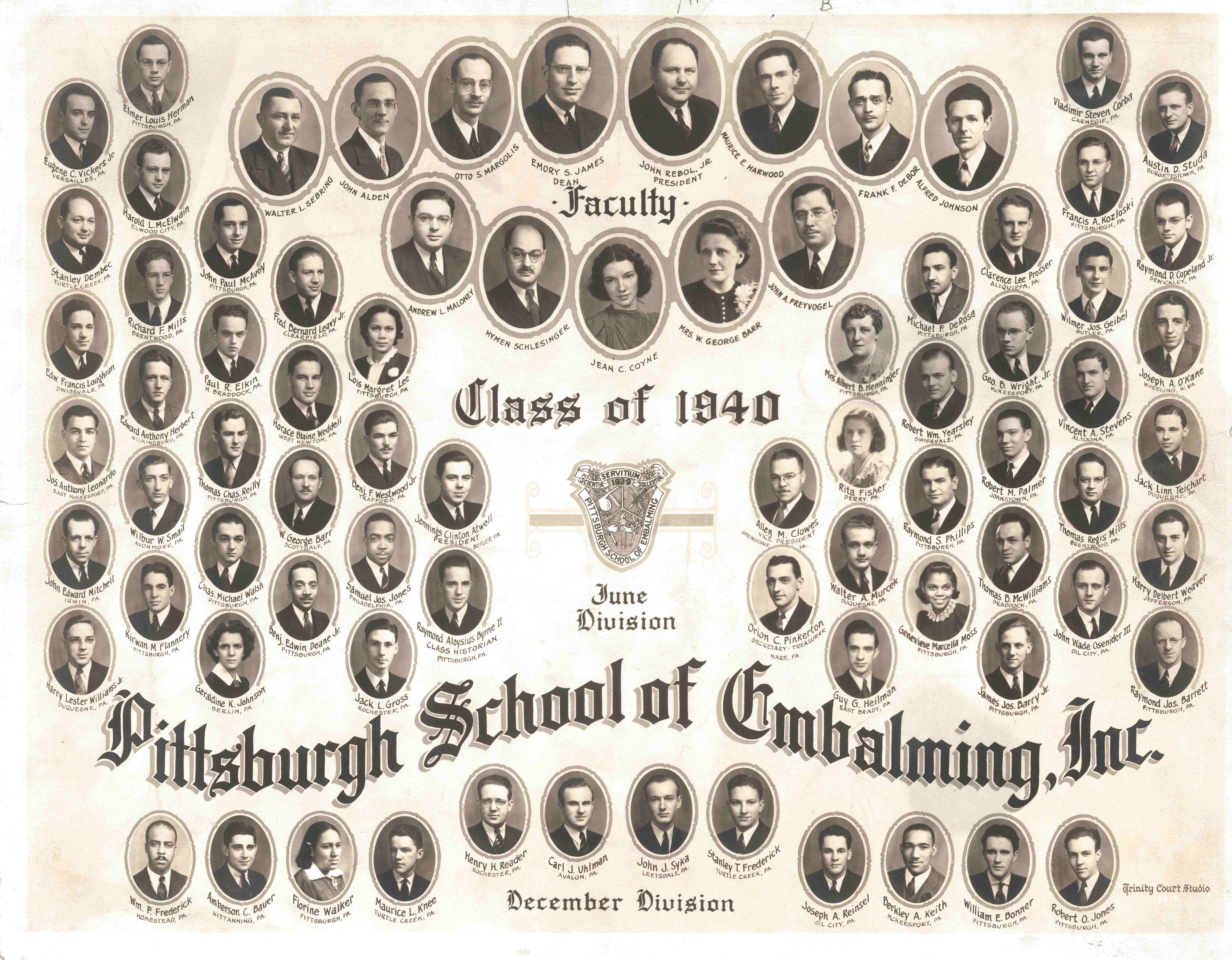
The Pittsburgh Institute of Mortuary Science has been providing training for students entering funeral service for over seventy-five years.
1939
PIMS Opens Its Doors as “The Pittsburgh School of Embalming”
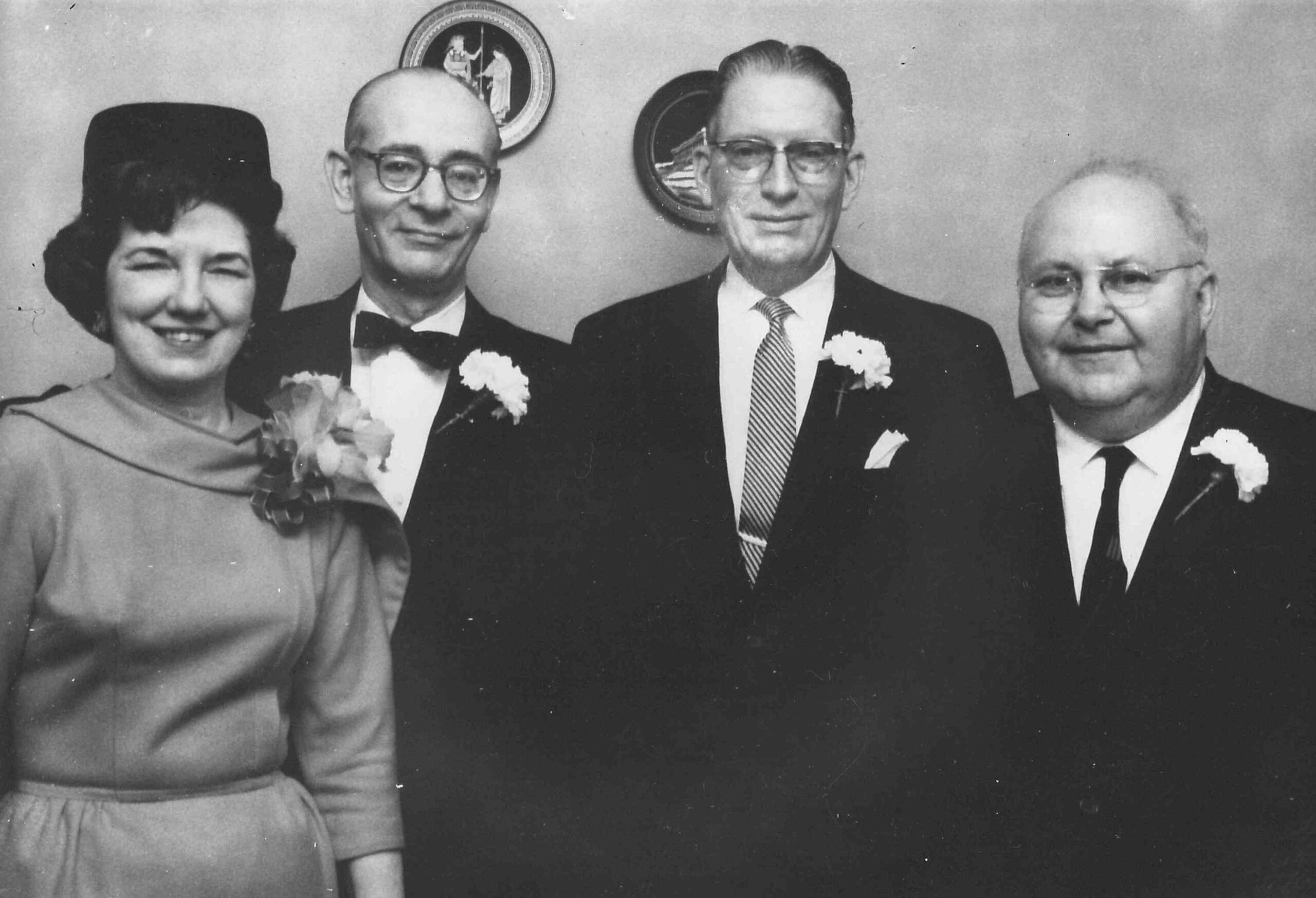
In 1939, PIMS came to life. The new training institute was known as the Pittsburgh School of Embalming. The co-founders included three educators, Dr. Otto S. Margolis and Professor John Rebol.
The co-founders, formerly affiliated with the Cleveland School of Embalming, are pictured above with Dr. Emory S. James, Instructor in the Anatomy Department of the Ohio State Medical School in Columbus, Ohio.
PIMS Starts Gaining Traction
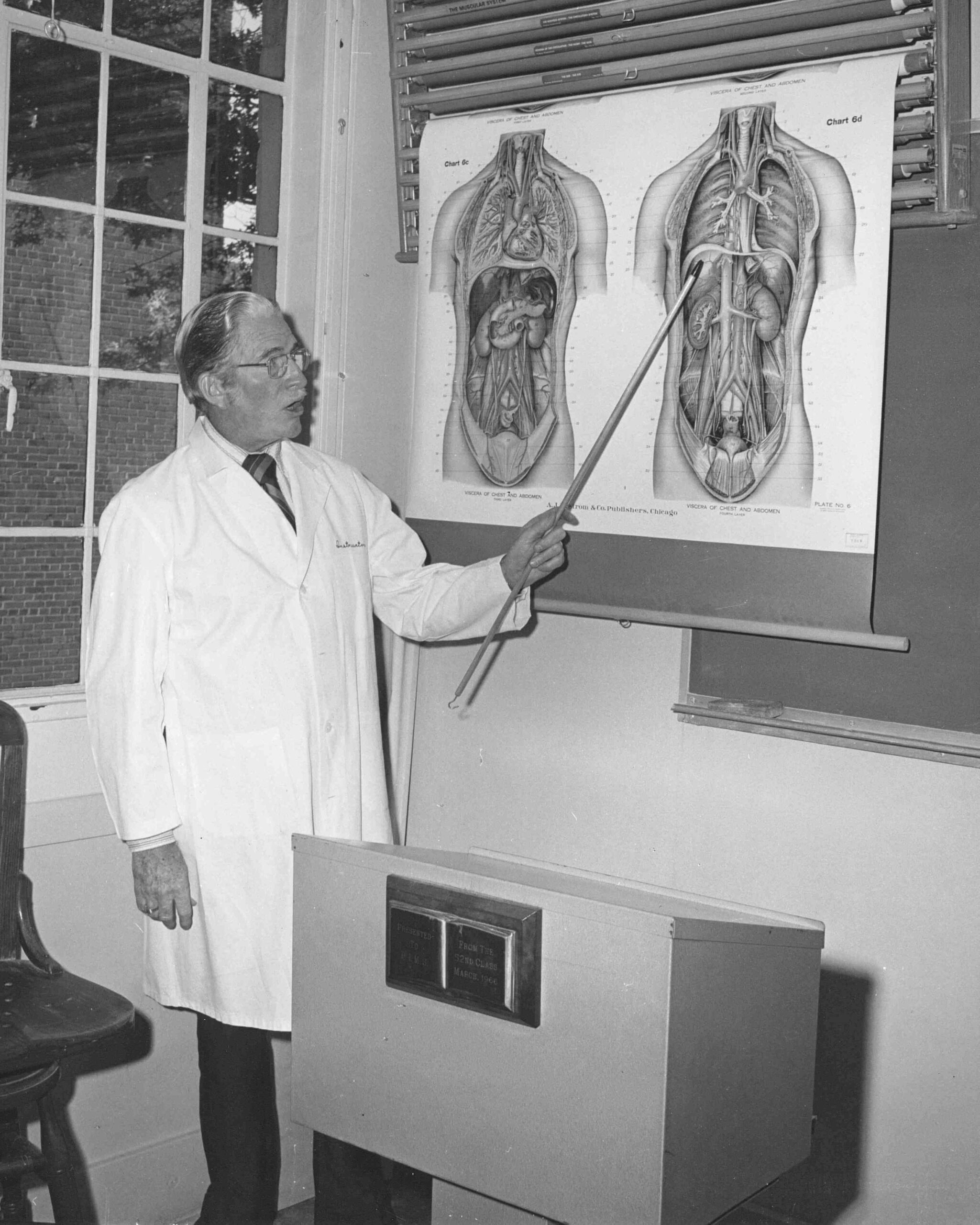
Mr. John A. Freyvogel, Sr., a funeral director, was the backbone when it came to making the new school in Pittsburgh an entity. He was the Western Pennsylvania representative for the State Anatomical Board.
His contacts in the business and University of Pittsburgh communities were constructive in finding a location for the school, securing furniture and equipment, and selecting additional faculty members. He served as the first President of the Pittsburgh School of Embalming.
1940
The First Graduates of PIMS
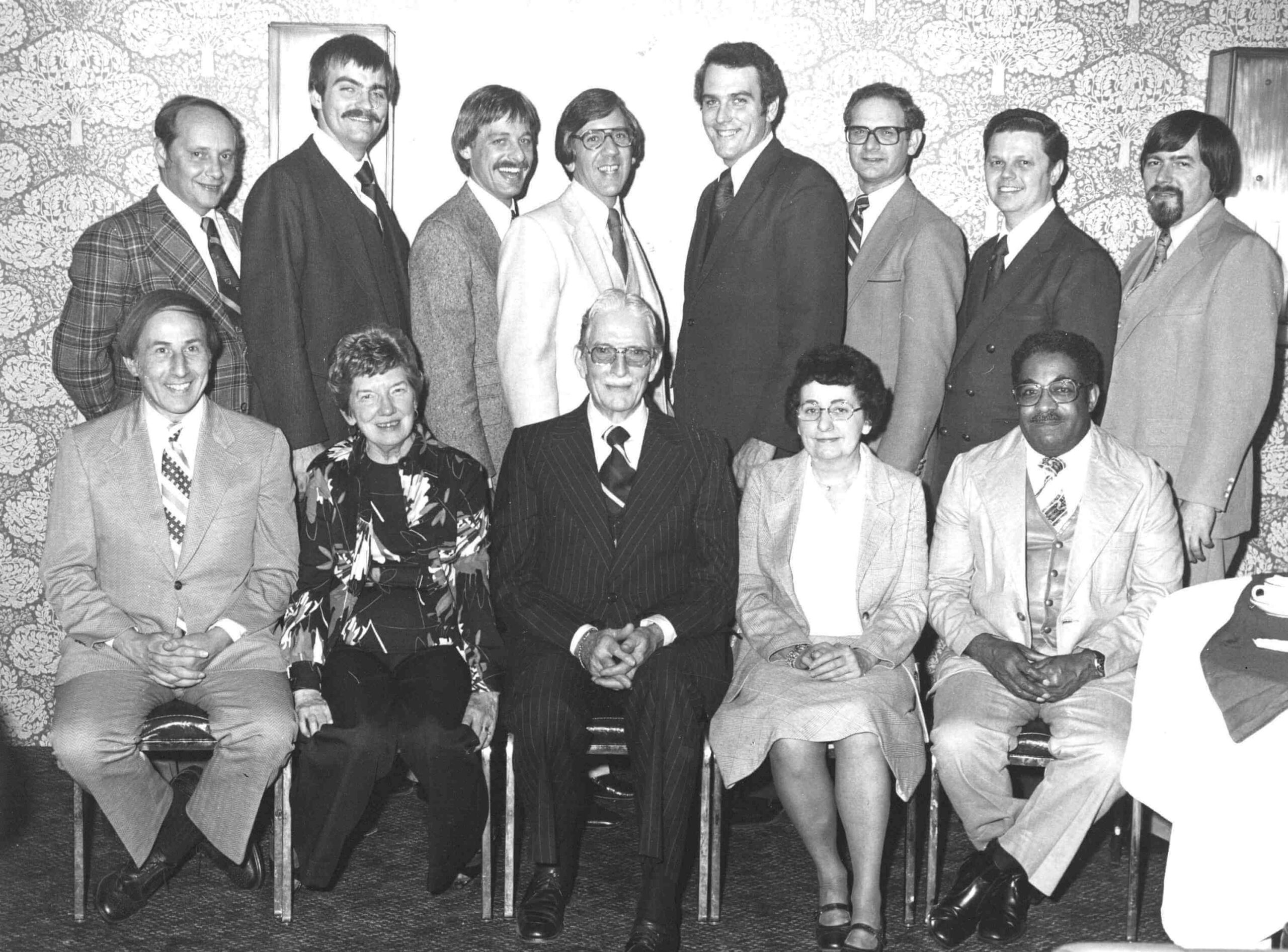
On September 18, 1939, sixty students enrolled for a nine-month curriculum and graduated June 23, 1940. The excellent dedication and cooperation of the students, which still exists today, resulted in outstanding academic achievement as well as the completion of several traditional projects for the new school.
These endeavors included the development of the school seal, motto, and the Alma Mater. The Motto, “Scientia, Sollertia, Servitium,” translated from Latin means, “Knowledge, Skills, Service,” which expresses in part the objectives of the Institute.
We Have an Anthem
Geraldine K. Johnson, a student from Berlin, Pennsylvania, wrote the lyrics of the Alma Mater. The music was composed by her uncle, Alfred H. Johnson, a member of the faculty.
Faculty Members Improve the Curriculum
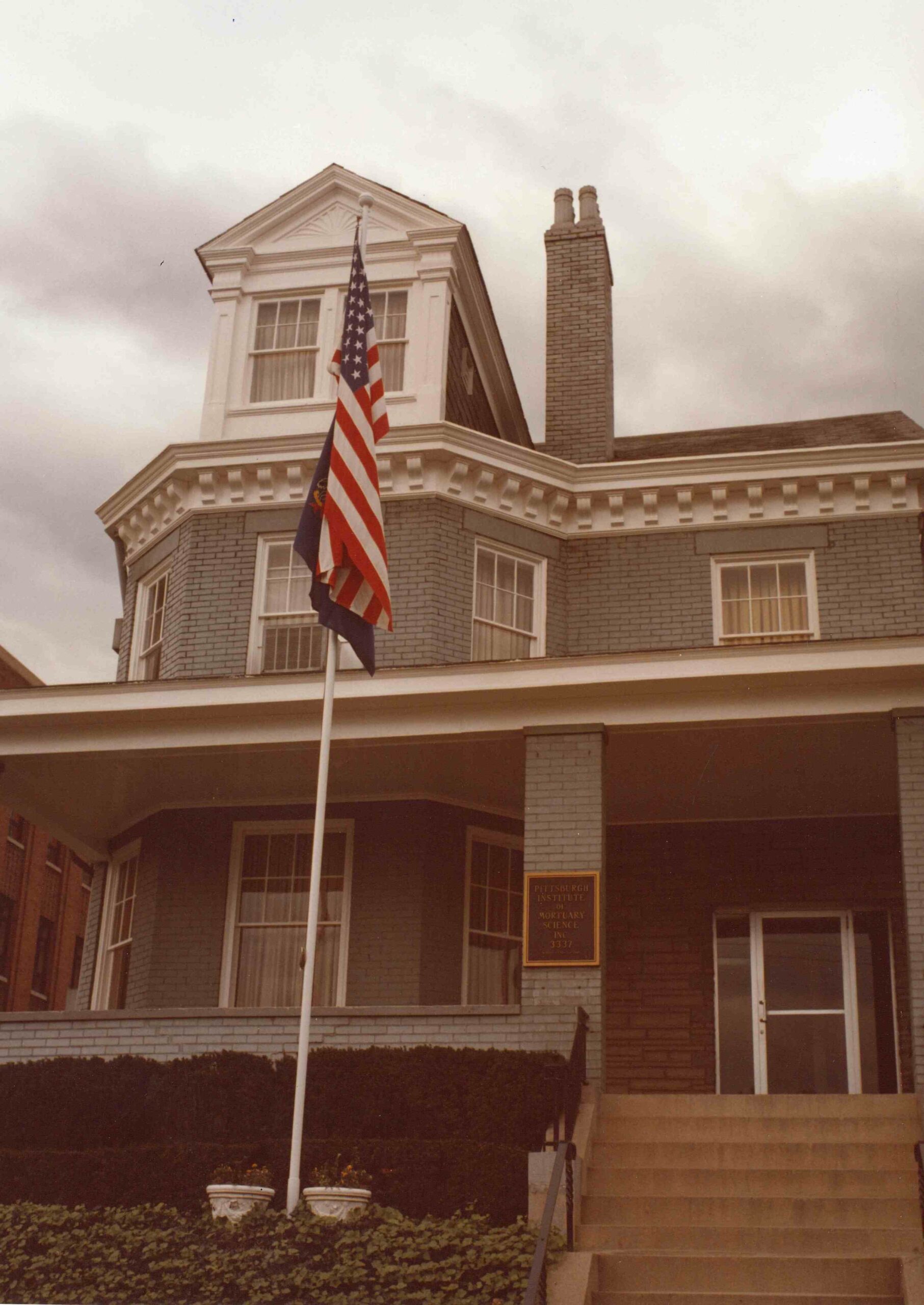
During 1940, faculty members attended the first of the teachers’ institutes and committee meetings dealing with curriculum and course development. The second teachers’ institute, which included representatives from all the approved schools was hosted by the Pittsburgh School of Embalming.
1945
The Name PIMS Is Officially Born
In 1945, the Pittsburgh School of Embalming updated its name to the Pittsburgh Institute of Mortuary Science after many modifications in the mortuary science curriculum, as well as the broader objective and increased responsibilities that justified the name change.
1947
We Introduce New Opportunities
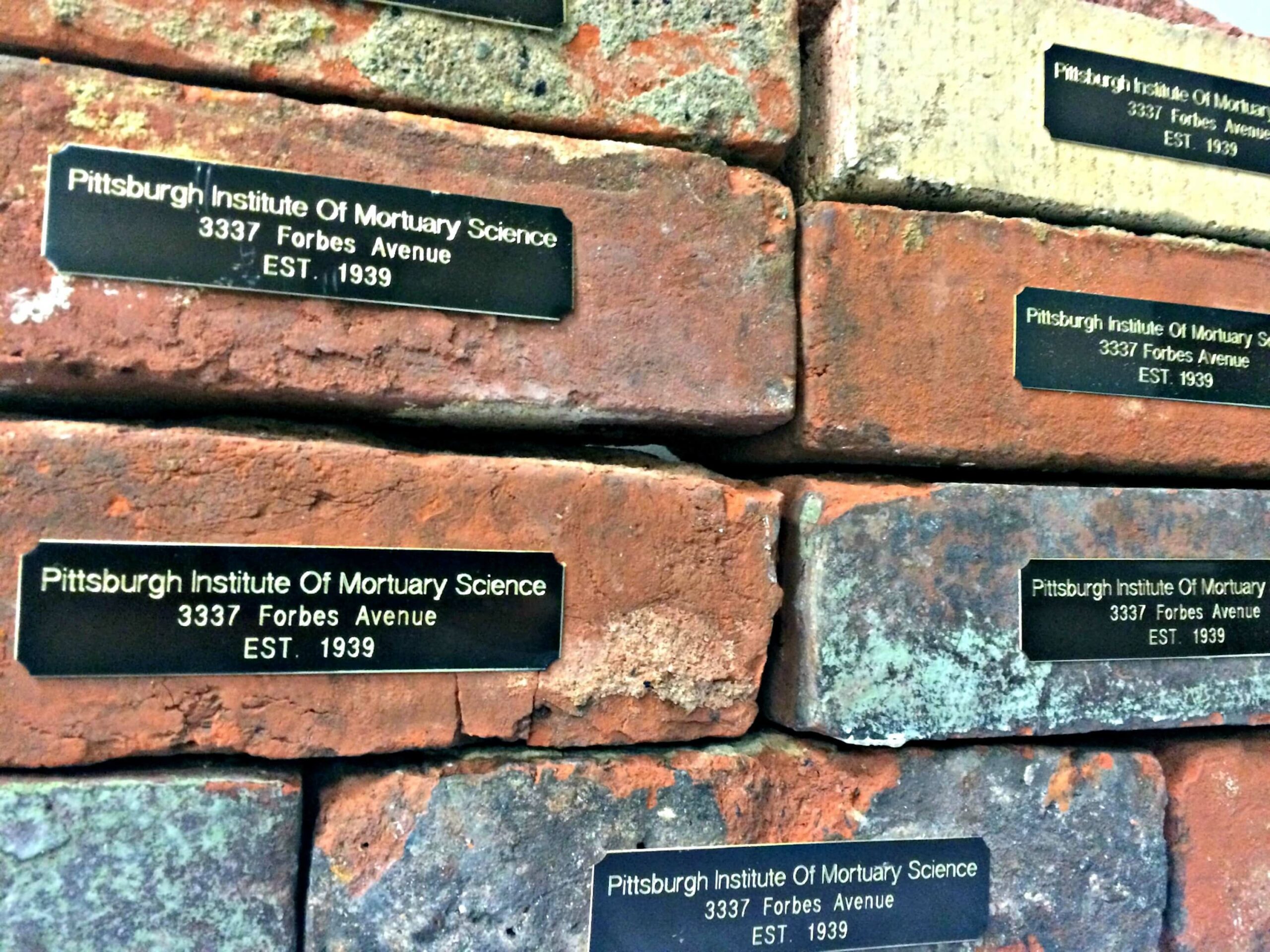
In 1947, a separate corporation was formed for a new school, The American Institute of Cemetery Administration. Dr. James was the Dean of the new school which operated for three years and graduated thirty students. Some of these graduates are still active in the management and operation of cemeteries.
1967
PIMS Becomes a Non-Profit
In 1967, The charter of the Pittsburgh Institute of Mortuary Science was changed to a non-profit educational institution.
1980s -2000
PIMS Expands and Grows

The Institute developed two cooperative baccalaureate degree programs with California University of Pennsylvania and Point Park University in 1983. Additional cooperative programs have since been developed with Gannon University in Erie, Pennsylvania, and Thiel College in Greenville, Pennsylvania. Students now have the opportunity to continue their education for the B.S. Degree in Mortuary Science or Business Administration while obtaining credit for professional studies at the Pittsburgh Institute.
During the summer of 1989, PIMS moved its facilities from its original site to the Shadyside area of the city. The new location remains within easy access to the various cultural opportunities which Pittsburgh presents.
2001 - present
PIMS Is a 21st Century School
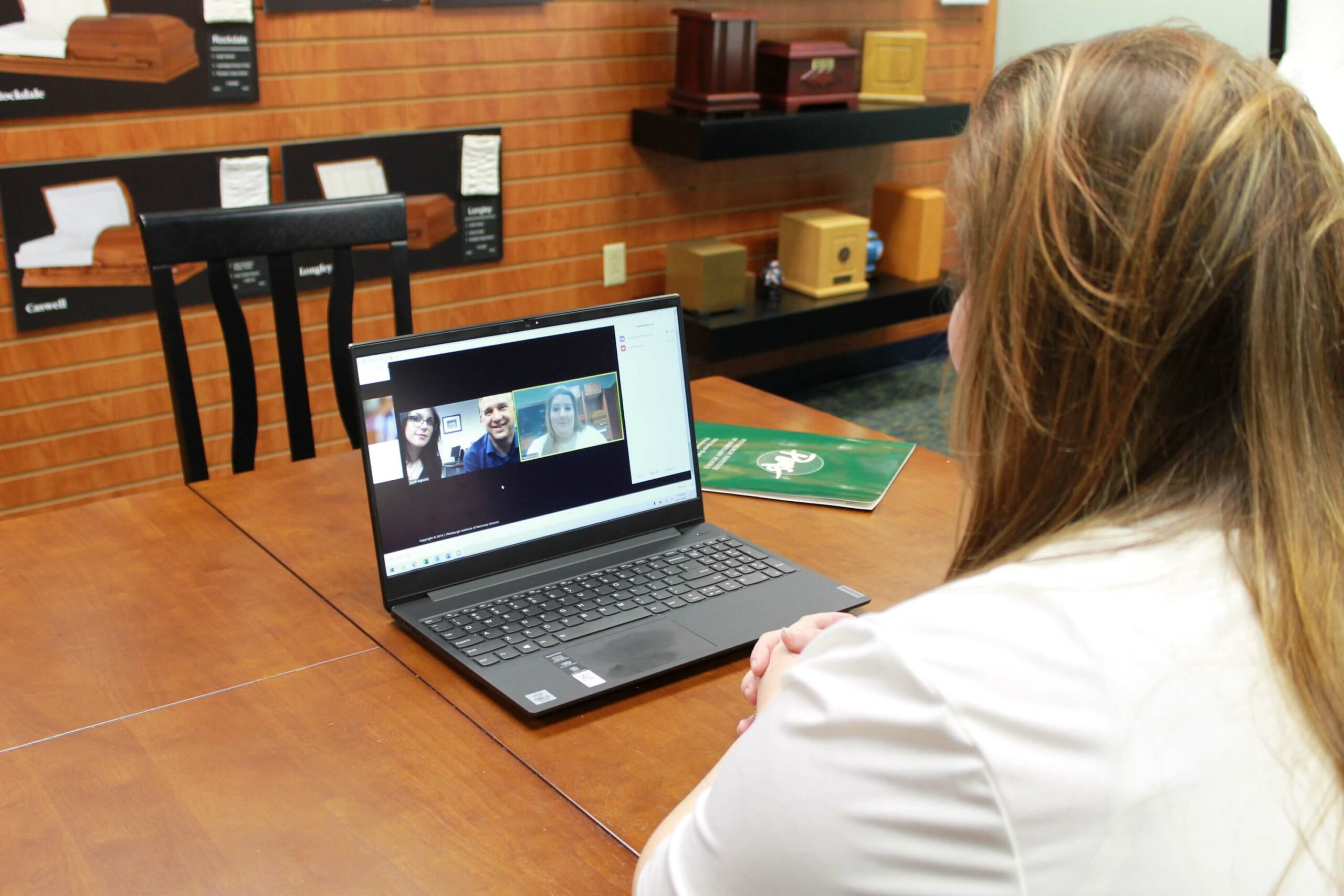
A new era…The first class of PIMS OnLine was admitted for classes starting January 29, 2001.
PIMS completed the construction of a state-of-the-art auditorium in September 2003. The spaces accommodate the entire student body for special engagements and continuing education programs by notable speakers for the profession.
The Pittsburgh Institute of Mortuary Science continues into the twenty-first century updating its services to its public and to the field of funeral service. It continues to remain a model for other funeral service education programs to follow.
OUR MISSION:
Embracing such ideals as diversity, integrity, and kindness, Pittsburgh Institute of Mortuary Science (PIMS) provides a robust, yet ethical learning environment in which all stakeholders are considered and students are inspired to practice service excellence. By valuing such virtues and emphasizing service, the family of faculty and administrative professionals at PIMS are empowered to provide an educational experience that epitomizes the need to respect the specific wishes of every bereaved family served, while honoring the decedents entrusted to their care. Whether it is on campus or online, the vision of the Pittsburgh Institute is to always provide an educational experience that helps to shape the future of the global death care community, while addressing the pragmatic business needs of individual funeral homes to continue compassionately serving their publics at large.
PIMS OBJECTIVES:
The administration of the Pittsburgh Institute of Mortuary Science is constantly aware of its obligations as a school and of its responsibilities to its students, to the funeral service profession and to the public. The school motto, “Scientia, Sollertia, Servitium,” expresses these objectives in part. Translated from Latin, the motto means “Knowledge, Skills and Service.”
The major objectives of The Pittsburgh Institute of Mortuary Science, Inc. are:
- To offer a post-secondary level curriculum and education program that will enlarge the background and knowledge of funeral service which are essential in meeting the student’s needs for licensure and successful funeral service practice.
- To foster and promote ideas in every phase of funeral service, enabling the student to develop proficiency and skills necessary for the profession, while at the same time sensitize the student to ecological and environmental concerns that apply.
- To engender a sense of social consciousness and awareness within each student that serving as a practicing funeral director entails obligations and responsibilities to be met most effectively through ethical professional practices, community service and good citizenship.
- To foster the true image of the funeral director as a member of the caregiving professions engaged in community health and welfare service.
- To instill a desire for continuing education, intellectual and spiritual growth throughout the years of professional life.
- To encourage cooperation with all individuals and groups concerned with the advancement of the standards of education and research for funeral service among faculty and students, alike.